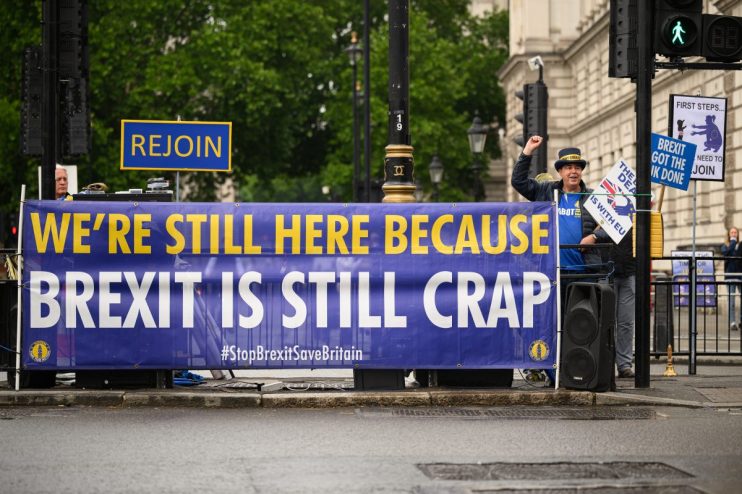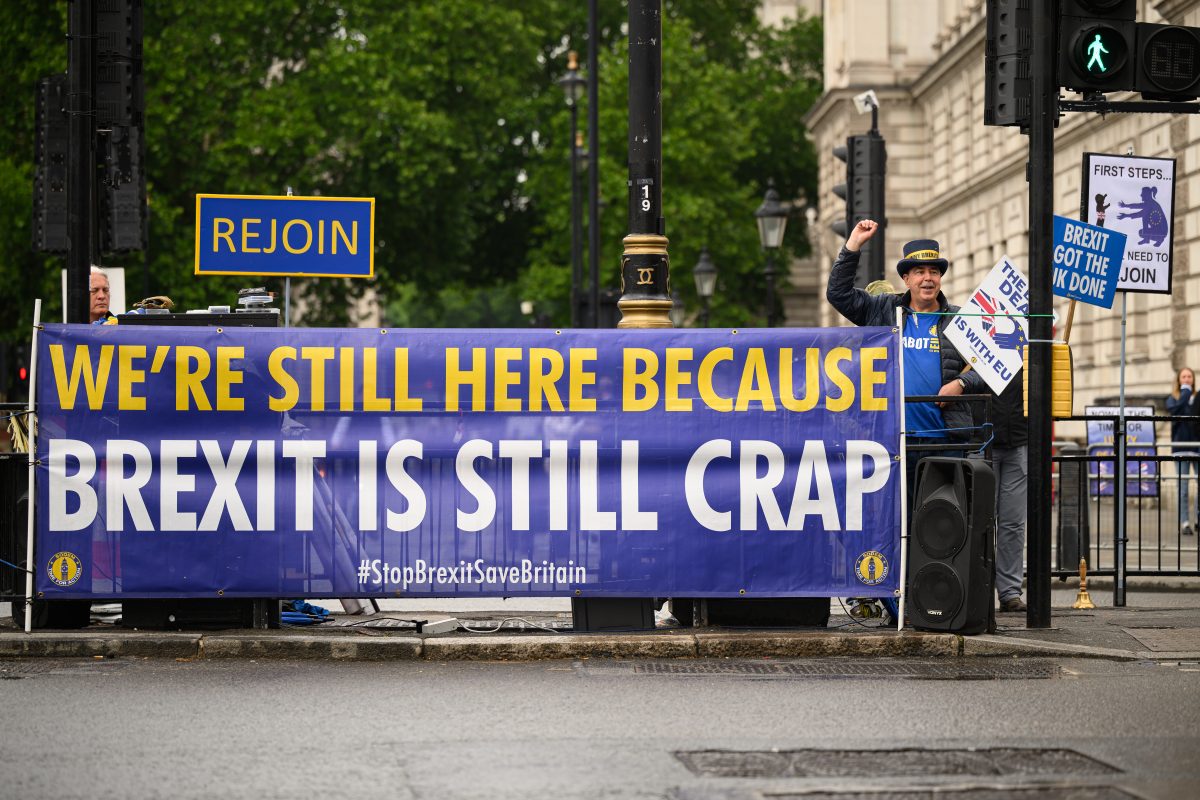Friday 01 August 2025 2:48 pm
Share
 (Photo by Leon Neal/Getty Images)
(Photo by Leon Neal/Getty Images)
Even the most ardent opponents of Brexit have been forced to concede the UK has got a better deal with the US than the EU, says Ben Ramanauskas
The EU and the US have tentatively agreed a trade deal. While the high tariffs levied on the EU by the US will ultimately harm American households and businesses, it is difficult to see it as anything less than a political win for the US at the EU’s expense. What is more, even the most ardent opponents of Brexit have been forced to concede that the UK has got a better deal with the US than the EU has. While this has come as a surprise to many, the UK was always going to get a better deal than the EU with the US and it is, to an extent, a vindication of Brexit.
EU’s size proves an obstacle
Size matters when it comes to trade. It gives a country or bloc clout and tends to strengthen its negotiating position. However, while size is important, in the EU’s case it was an obstacle to getting a good deal with the US.
The sheer size of the EU and the fact that it has a trade surplus with the US has created problems for the EU. It means that Trump and his advisers view the EU as they do China – as a threat to America and so concessions were always unlikely to be forthcoming.
What is more, while the EU is large, it is not a single nation but rather a bloc of countries, with each member state having its own demands and priorities. Its deal with the US was rushed and forced upon its two most important members: France and Germany, who are understandably unhappy with it and could be why the deal might still fall apart, should these nations refuse to ratify it. This is often the case with the EU. It is why it took 25 years to negotiate a deal with Mercosur. It is why membership for Ukraine is probably a long way off due to the concerns of Polish and French farmers. It is also why the Brexit negotiations were often so acrimonious and difficult. The EU’s size and composition has made it sclerotic and unable to negotiate anything quickly; the US deal is just another in a long line of examples of this.
Brexit has meant better UK trade deals
It is also a partial vindication of Brexit. The UK managed to get a better deal with the US, but this is not the first time that the country has been able to strike better deals, often very quickly, since leaving the EU. For example, the UK had a deal with Japan due to its membership of the EU known as the Economic Partnership Agreement (EPA). After leaving the EU it signed the Comprehensive Economic Partnership Agreement (CEPA) with Japan. As someone who was advising the secretary of state for international trade on the deal, I saw first hand how quickly the negotiations were able to be conducted.
Moreover, rather than it being a negotiation between Japan and 28 countries each with their own red lines and demands and with the UK’s interests being diluted, it was a negotiation between two nations. As such, the interests and priorities of both countries took precedence and so a more substantial deal which was more beneficial for both countries was agreed. To celebrate the deal and drive home the point, the UK negotiating team had mugs made with the phrase ‘CEPA goes deeper than EPA’ printed on them.
While some have argued that the UK has lost a measure of clout as a result of Brexit, this has been more than compensated for by its new ability to act quickly and in a nimble way – as the deal with the US demonstrates. It should use its agility to take advantage of having an independent trade policy by building on existing trading partnerships while also developing new relationships with some of the world’s fastest growing economies in East Asia, including by making the most of our membership of CPTPP as set out in Policy Exchange’s report, Trading Tigers.
Ben Ramanauskas is a senior research fellow in economics at Policy Exchange
Read more
Is Brexit Britain a winner of the EU and US trade tie-up?
Similarly tagged content:
Sections
Categories
People & Organisations
